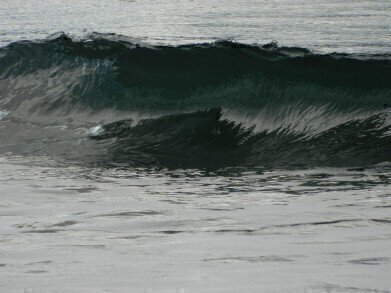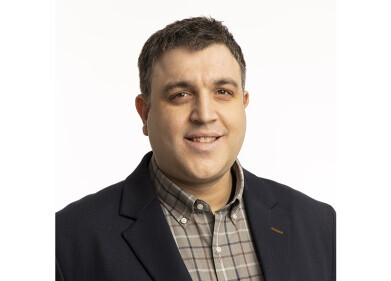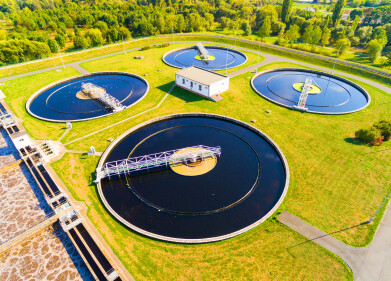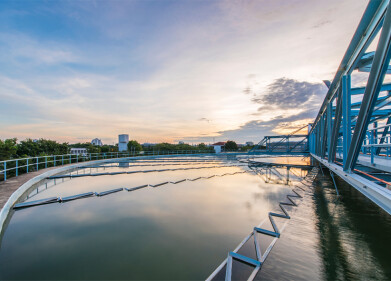Water/Wastewater
Will the UK Have the World’s First Tidal Power Station?
Nov 22 2016
Swansea could be home to the world’s first tidal power station, if all goes to plan and Tidal Lagoon Power (TLP) – the company responsible for the enterprise – receive a marine license from the regional governing body, National Resources Wales (NRW).
To date, the project has been granted planning permission and it’s believed that once it’s operational, it could provide as much as 11% of Wales’ energy needs, thus curbing the nation’s carbon output. It’s ironic, then, that the process is being held up by the tidal power station’s potential effects on the environment in other ways.
By the numbers
Back in 2010, the UK broke new ground with the installation of the largest tidal turbine in the world at the time off the coast of Invergordon in Scotland. Now, it’s looking to go one further by housing the world’s first tidal power station in southern Wales in a project that’s believed to be worth around £1.3bn.
Once operational, the station could prevent roughly 236,000 tonnes of carbon being expelled into the atmosphere every year, which would contribute significantly to meeting the UK’s targets agreed upon both with the EU and at the Paris climate talks last December.
In fact, the station forms part of a bigger plan to keep up the British end of the bargain with respect to the agreement signed in Paris last year. If TLP’s ambitions are realised, Swansea will be the first of six such tidal lagoons across the UK – with five of those being built in Wales. The other sites are Colwyn Bay, Cardiff, Newport, Bridgwater Bay and Cumbria, with three others planned before 2030. Once all of them are activated, it’s estimated that they could reduce the UK’s carbon footprint by as much as 136 megatonnes.
“Our vision is that Wales will play an enormous part in delivering the Paris Agreement and it will do that in delivering Swansea, Cardiff, Newport and Colwyn Bay tidal lagoons,” explained Mark Shorrock, CEO of TLP.
Environmental concerns for local wildlife
Though the plan is intended to alleviate manmade impact on the environment, concerns have been raised about its direct effects on the wildlife in the area. Particularly, the ecosystems, habitats and breeding patterns of fish, birdlife, marine-dwelling mammals and invertebrates which live in the region are thought to be under threat from the installation of the power station.
One outspoken critic is Mark Lloyd, the CEO of Angling Trust and Fish Legal. “We know anecdotally fish swim around for a long time out in the Severn estuary, going back and forth on the tide in this very sediment-rich water - and we know they have to wait for a long time for enough flow in these south Wales rivers to go back upstream,” Mr Lloyd told the BBC.
“You shouldn’t carry out a giant experiment like this using public money in such a sensitive environment, which is so delicate and with so many threatened species in it. Swansea only works from an economic point of view if you build all the other lagoons as well. If you build all the other lagoons you have a very big environmental impact with a lot of unknown consequences, not just on fish.”
However, Mr Shorrock countered that he believes the station will actually have a positive influence on the local fauna. “We understand the model pretty accurately - how much inter-tidal will be lost if we build a breakwater on it; there's a very strong case that ultimately lagoons are not just going to create more inter-tidal but also create more protectors,” he said.
“It’s a very harsh environment. The Severn makes it harder to live in than The Wash of the Humber. We're hearing quite a lot of people saying we think birds will start using the areas inside the lagoons more because it will be less energetic, less extreme in its variations.”
An independent review has been set up to assess the feasibility of the installation from both a financial and an environmental perspective. The results are expected by the end of 2016.
Digital Edition
IET 34.2 March 2024
April 2024
Gas Detection - Biogas batch fermentation system for laboratory use with automatic gas analysis in real time Water/Wastewater - Upcycling sensors for sustainable nature management - Prist...
View all digital editions
Events
Apr 30 2024 Melbourne, Australia
Apr 30 2024 Birmingham, UK
May 03 2024 Seoul, South Korea
May 05 2024 Seville, Spain
May 06 2024 Minneapolis, MN, USA


















